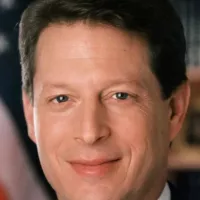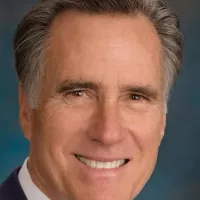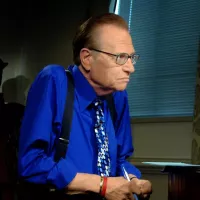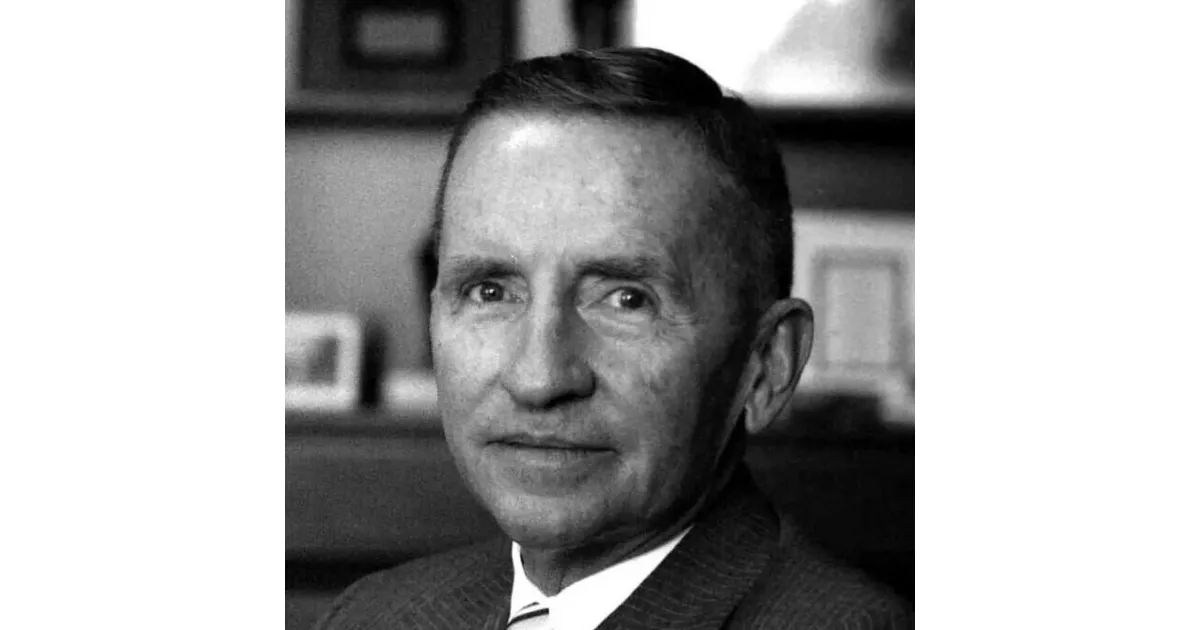H. Ross Perot was a prominent American businessman, politician, and philanthropist. He founded and led Electronic Data Systems (EDS) and Perot Systems, achieving significant success in the business world. Perot also made a notable impact on the American political landscape through his independent and third-party presidential campaigns in 1992 and 1996, respectively. In 1992, he ran as an independent candidate, capturing a substantial portion of the popular vote. He founded the Reform Party following that election and ran as its candidate in the 1996 presidential election. While he didn't win any states in either election, his campaigns remain historically significant as some of the strongest showings by a non-major party candidate in U.S. presidential history.
1912: Theodore Roosevelt's presidential run
Theodore Roosevelt ran for president in 1912.
1924: Robert La Follette's presidential run
Robert La Follette ran for president in 1924 as a third-party candidate and won electoral college votes.
November 15, 1933: Margot Birmingham's Birth
Margot Birmingham, who later married Ross Perot, was born on November 15, 1933. She graduated from Goucher College.
1948: Strom Thurmond's presidential run
Strom Thurmond ran for president in 1948 as a third-party candidate and won electoral college votes.
1968: George Wallace's presidential run
George Wallace ran for president in 1968 as a third-party candidate and won electoral college votes.
1969: Perot's involvement in the Vietnam War POW/MIA issue begins
In 1969, following a White House-requested trip to Laos, Ross Perot became deeply involved in the Vietnam War POW/MIA issue, believing that American servicemen were left behind and that the government was concealing information.
1976: Network movie released
The movie "Network", which featured a quote used in later protests against Congress, was released in 1976.
1984: Perot Foundation purchases Magna Carta
In 1984, the Perot Foundation acquired an early copy of the Magna Carta and loaned it to the National Archives in Washington, D.C.
1988: Perot Systems founded
In 1988, Ross Perot founded Perot Systems in Plano, Texas. His son, Ross Perot Jr., later took over as CEO.
1990: Perot negotiates with Vietnam
In 1990, Perot negotiated with the Vietnamese government, offering to act as a business agent in exchange for normalized diplomatic relations. He also initiated investigations into Richard Armitage, a Department of Defense official.
1990: Perot opposes Gulf War, considers presidential run
In 1990, Ross Perot openly opposed U.S. involvement in the Persian Gulf War and began considering a presidential campaign.
1990: Perot supports THRO
In 1990, Ross Perot supported "Throw the Hypocritical Rascals Out" (THRO), a movement founded by Jack Gargan to protest Congressional pay raises.
February 20, 1992: Perot announces presidential bid on Larry King Live
On February 20, 1992, Ross Perot announced on Larry King Live his intention to run for president if his supporters could secure his place on the ballot in every state. His platform included balancing the budget, gun control, preventing job outsourcing, and electronic direct democracy.
March 18, 1992: Perot criticizes Congress at National Press Club
On March 18, 1992, Ross Perot delivered a speech at the National Press Club in Washington, D.C., criticizing Congress for its inaction.
May 25, 1992: Perot featured on Time magazine cover
On May 25, 1992, Ross Perot was featured on the cover of Time magazine, with the title "Waiting for Perot."
1992: Perot's influence after 1992 election
After the 1992 election, Ross Perot remained a public figure and actively opposed the North American Free Trade Agreement (NAFTA).
1992: Political Stances in 1992
During his 1992 campaign, Perot supported stricter gun control, increased AIDS research, and was hesitant on gay rights.
1992: Perot's 1992 Election Budget Proposal
During the 1992 election, Ross Perot presented a comprehensive budget plan aimed at balancing the budget through various policy changes. Key proposals included raising income tax brackets for the wealthiest households, increasing the taxable portion of Social Security benefits for higher earners, implementing a tax on employer-paid health insurance, doubling the cigarette tax, increasing the gasoline tax by 50 cents per gallon (with provisions for affected workers), and significant cuts in military spending and the space station project.
1992: Opposition to the Gulf War
In 1992, Perot opposed the Gulf War, advocating for an isolationist foreign policy focused on domestic economic recovery. He criticized Bush's ties with Saddam Hussein and the administration's handling of the Iraqi invasion of Kuwait.
1992: Pro-Choice Stance
In 1992, Perot was a pro-choice activist and supported Planned Parenthood, advocating for federal funding for abortions for poorer women.
1992: Perot's Populism
In 1992, Perot's ideology was described as "populism of the center", distinct from left or right-wing populism. He criticized "trickle-down economics" and the "decade of greed". Some scholars categorized him as a liberal populist with center-left leanings, representing a repudiation of the neoliberal agenda.
1992: Perot campaign struggles
In July 1992, during the Democratic National Convention, Ross Perot's campaign faced internal struggles and declining poll numbers due to his management style and resistance to advice from his campaign managers.
1992: Perot's strong showing in presidential election
In the 1992 presidential election, Ross Perot received 18.9% of the popular vote, the highest percentage for an independent candidate since Theodore Roosevelt in 1912. While he didn't win any electoral votes, he finished second in Maine and Utah.
1992: NAFTA Opposition in 1992
Perot's opposition to NAFTA was a central theme of his 1992 presidential campaign. He argued it would lead to the loss of American manufacturing jobs to Mexico.
1992: Analysis of Perot's voter demographics
Post-election analysis in 1992 showed that Ross Perot's support came from across the political spectrum, mainly from middle and upper-middle-class voters. It's debated whether his candidacy affected the election's outcome.
1992: 1992 Presidential Election
Ross Perot ran for President in 1992.
November 10, 1993: Perot-Gore NAFTA Debate
On November 10, 1993, Ross Perot debated Vice President Al Gore on NAFTA on Larry King Live. Perot argued against NAFTA, claiming it would lead to job losses in the US. The debate, viewed by 16 million people, was considered a turning point in Perot's political career, and support for NAFTA subsequently increased.
1993: Economic and Trade Policy Views
In 1993, Perot supported tax cuts for small and medium businesses and a balanced budget amendment. He opposed NAFTA, arguing it caused trade deficits and job losses, a stance that became central to his 1992 and 1996 presidential campaigns.
1995: Reform Party Founding
In 1995, Ross Perot founded the Reform Party.
1996: Open Support for Gay Rights
By 1996, Perot openly supported gay rights.
1996: 1996 Presidential Election
In 1996, Ross Perot ran for president as the Reform Party candidate with Pat Choate as his running mate. He secured 8% of the popular vote, a lower percentage than his 1992 run. His exclusion from the presidential debates was cited as a possible reason for the decline.
1996: NAFTA Opposition in 1996
Perot continued his opposition to NAFTA in his 1996 presidential campaign.
1996: Perot eligible for federal election funding
Ross Perot was eligible for federal election funding in 1996 based on his performance in the 1992 election.
2000: Reluctant Pro-Choice Stance
By 2000, Perot was reluctantly pro-choice.
2000: 2000 Presidential Election Endorsement
In 2000, Ross Perot remained largely uninvolved in the Reform Party's internal disputes and endorsed George W. Bush for president.
April 2005: Texas Legislature Testimony
In April 2005, Ross Perot testified before the Texas Legislature, advocating for increased student access to technology, including laptops and e-books, and local control over textbook purchases. He also expressed concern about the lack of progress on issues he had championed in his presidential campaigns.
2007: Perot Foundation sells Magna Carta
In 2007, the Perot Foundation sold its copy of the Magna Carta for $21.3 million to David Rubenstein, with the proceeds earmarked for medical research, education, and support for wounded soldiers and their families. The document remains on display at the National Archives.
January 2008: 2008 Presidential Endorsement
In January 2008, Ross Perot publicly endorsed Mitt Romney for president and announced the upcoming launch of a new website.
June 2008: Blog Launch
In June 2008, Ross Perot launched a blog focusing on economic issues such as entitlements, national debt, and related topics.
September 2009: Perot Systems acquired by Dell
In September 2009, Dell acquired Perot Systems for $3.9 billion.
2016: FiveThirtyEight analysis of Perot's impact
In 2016, FiveThirtyEight analyzed the 1992 election and found it unlikely that Perot's candidacy significantly impacted the result.
2016: No 2016 Endorsement
Ross Perot did not endorse any candidate during the 2016 presidential election.
2023: Estimating Ross Perot's Net Worth
In 2023, Forbes estimated Ross Perot's net worth to be $4.8 billion, ranking him as the 167th-richest person in the United States.
Mentioned in this timeline

George W Bush the rd U S President - is...

The White House located at Pennsylvania Avenue NW in Washington...

Al Gore served as the th U S Vice President...

Washington D C is the capital city and federal district...

Mitt Romney is an American businessman and former politician He...

Larry King was a celebrated American author radio and television...
Trending
9 months ago Hilary Knight Announces 2026 Milan Olympics Will Be Her Last Olympic Games

8 months ago Katie Boulter competes against Keys in the French Open 2025 at Roland Garros.

9 months ago Scott Galloway Proposes Social Security Fix: Impact and Billionaire Benefits Analyzed
4 months ago Russian Airstrikes in Ukraine Kill Six, Putin-Trump Talks Shelved Amid Escalation.
9 months ago Estonia Strengthens Defense With HIMARS, Honors Veterans, and Prepares for Live Fire Training.

10 months ago Alex Bowman Scores Pole at Bristol, Suffers Engine Failure During NASCAR Cup
Popular

Kid Rock born Robert James Ritchie is an American musician...

Melania Trump a Slovenian-American former model has served as First...

XXXTentacion born Jahseh Dwayne Ricardo Onfroy was a controversial yet...
The Winter Olympic Games a major international multi-sport event held...

Thomas Douglas Homan is an American law enforcement officer who...

Instagram is a photo and video-sharing social networking service owned...
